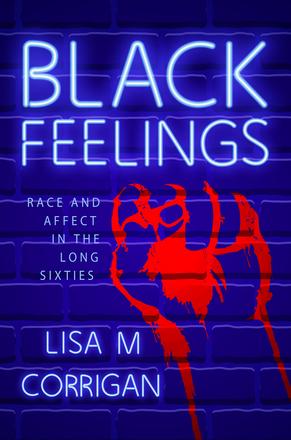
Black Feelings
Race and Affect in the Long Sixties
How the Black liberation movement confronted ideologies of progress and equality through emotional discourse
Description
Honorable Mention Recipient of the 2021 Marie Hochmuth Nichols Award for Outstanding Scholarship in Public Address by the National Communication Association
In the 1969 issue of Negro Digest, a young Black Arts Movement poet then-named Ameer (Amiri) Baraka published “We Are Our Feeling: The Black Aesthetic. ” Baraka’s emphasis on the importance of feelings in Black selfhood expressed a touchstone for how the Black liberation movement grappled with emotions in response to the politics and racial violence of the era.
In her latest book, award-winning author Lisa M. Corrigan suggests that Black Power provided a significant repository for negative feelings, largely Black pessimism, to resist the constant physical violence against Black activists and the psychological strain of political disappointment. Corrigan asserts the emergence of Black Power as a discourse of Black emotional invention in opposition to Kennedy-era white hope. As integration became the prevailing discourse of racial liberalism shaping midcentury discursive structures, so too, did racial feelings mold the biopolitical order of postmodern life in America.
By examining the discourses produced by Martin Luther King, Malcolm X, Stokely Carmichael, Huey Newton, Eldridge Cleaver, and other Black Power icons who were marshaling Black feelings in the service of Black political action, Corrigan traces how Black liberation activists mobilized new emotional repertoires
Reviews
"By drawing on Black experience and history, Corrigan offers compelling evidence for feelings as central to political life and survival. The result is a novel history of the civil rights and Black Power movements as structures of feeling. Corrigan’s understanding of Black radical traditions as affectively driven is also a valuable resource for theories of racialized affect and recent discussions of hope, Afro-pessimism, and Black joy. We need more books like this. "
- Ann Cvetkovich, author of Depression: A Public Feeling and coeditor of Political Emotions
"Black Feelings fills the aperture in rhetorical and social movement studies concerning how feelings are racialized and how emotions significantly influence the tactics deployed by protestors."
- Cecilia L. Cerja, Quarterly Journal of Speech